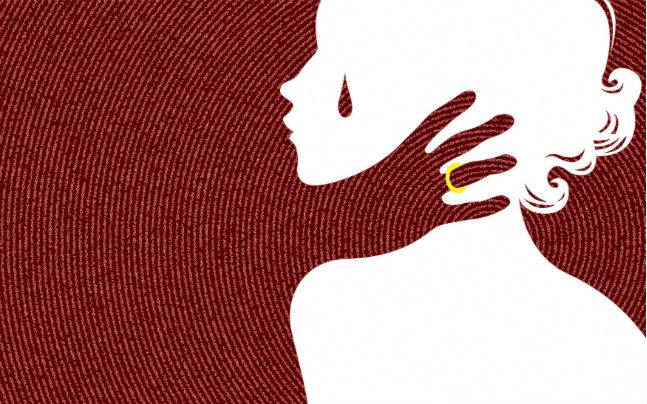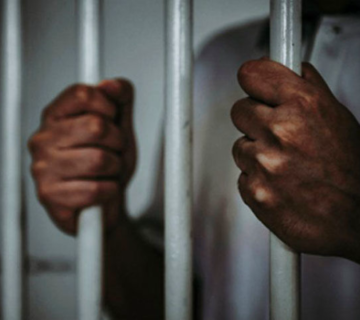This article is authored by Kanika Dayma and edited by Mr. Anoop Prakash Awasthi, AOR and Adv. Parthvi Ahuja.
Marital rape is an act of sexual intercourse with one’s spouse without the spouse’s consent. It is considered a heinous crime and is criminalized in a few countries. Poland was the first country to explicitly criminalise marital rape in 1932. Afterwards, Australia passed reforms and criminalized marital rape. In the United Kingdom, the law criminalises rape, spousal rape, and domestic violence. The maximum legal penalty for rape in the United Kingdom is life imprisonment. The law also provides injunctive relief, personal protection orders, and protective exclusion orders (similar to restraining orders) for female victims of violence. The United States of America also declared marital rape as illegal in 50 states since 1993.
Indian Penal Code, 1860 defines rape under Section 375 to include all forms of sexual assault involving non-consensual intercourse with a woman that includes Exception 2 which states that sexual intercourse or sexual acts by a man with his own wife, the wife not being under fifteen years of age, is not rape. This means that forced sex in marriages is considered a crime only when the wife is under the age of 18. Also, However, rape of an estranged or separated wife is a criminal offence for up to seven years under Section 376B of IPC. The expression “marital rape” is nowhere mentioned in the Indian Penal Code, 1860. However, certain judgments have been passed recently regarding the same.
In 2018, The Gujarat High Court quashed the FIR on rape charges filed by a woman against her husband but gave a lengthy reasoning on the need to criminalise marital rape.
The Kerala High Court in 2021 recognised Marital rape as a form of cruelty and a good ground to claim divorce. In March 2022, the Karnataka High Court in a landmark judgement considered marital Rape no different than Non-Marital Rape while refusing to quash rape charges filed by a wife against her husband. The court held that a husband was liable to be charged for rape if he has forcible sex with his wife. Marriage is no license to “unleash a brutal beast”, the court had said. “A man is a man; an act is an act; rape is a rape, be it performed by a man the ‘husband’ on the woman ‘wife’,” the Karnataka High Court had observed that an accused should trial regardless of the immunity in the penal code.
India has been hanging on a thread in its fight to criminalise marital rape. Recently in May 2022 the Delhi High Court delivered a 1:1 split verdict on the issue of criminalisation of marital rape and said that the matter will have to be considered by the apex court. The two-judge bench of justices Rajiv Shakdher and C Harishanker gave differing opinions on whether certain sexual acts done by a husband should be Constitutional.
The JS Verma Committee, which was set up in the aftermath of the December 2012 rape case, had also recommended changes to rape laws making marital rape a criminal offence.
According to the Protection of Women From Domestic Violence Act (2005), other married women subject to a “sexual nature that abuses, humiliates, degrades or otherwise violates the dignity of woman” by their husband may demand financial compensation including regular allowances and child custody. They also have the right to continue to live in their marital household if they wish, or may approach shelter or aid homes. However, marital rape is still not declared as a criminal offence.
In 2016, the Women and Child Development Minister Maneka Gandhi in her written reply said that the concept of marital rape cannot be applied in India, “due to various factors like level of education/illiteracy, poverty, myriad social customs and values, religious beliefs, the mindset of the society to treat the marriage as a sacrament.”
About 32% of women in India, who have ever been married, have experienced spousal physical, sexual, or emotional violence, according to the latest fifth round of the National Family Health Survey (NHFS-5).
A recent report by the United Nations revealed that 25 per cent of married women in the 18-49 years age group who have experienced spousal physical or sexual violence report having physical injuries, including seven per cent who have had eye injuries, sprains, dislocations, or burns and 6 per cent who have had deep wounds, broken bones, broken teeth, or any other serious injury.
To conclude, the patriarchal mindset poses a major hindrance to criminalizing the marital rape in India. The criminalization of marital rape does not necessarily mean that these laws are enforced. A lack of public awareness and an outright refusal of authorities to prosecute is also one of the major reasons why such cases are never filed. Thus, the laws regarding marital rape create controversy among the people in society but it should be noted that a married woman has the right to control her body and therefore she should also be given the same rights as that of an unmarried woman.






